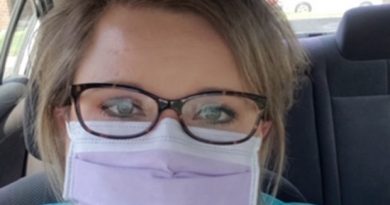Practice Gratitude this Thanksgiving to Improve Mental Health
The holiday season is just around the corner. For many, this time of year can come with challenges of sadness, anxiety, and depression. November is National Gratitude month for an important reason. Practicing gratitude can have an impact on mental health. Gratitude can be a powerful resource to increase happiness, well-being, and overall life satisfaction. Having gratitude can decrease anxiety, depression, and stress. This article will help to demonstrate why Thanksgiving and the month of November is the perfect time to start incorporating gratitude into your daily life.
There has been extensive research that proves our mental health improves significantly if we learn to be consistently grateful. To keep it short, gratitude has a positive impact on dopamine levels that help us experience positive feelings. Gratitude also increases a neurotransmitter, serotonin, which can help improve sleep and the overall condition of the body. Gratefulness causes our brain to release more positive neurotransmitters like dopamine, serotonin, and oxytocin. These all lead to increased feelings of happiness and less stress in the body. Take a moment to realize that practicing gratitude can literally rewire your brain.
READ: Ending Mental Health Stigma
Gratitude is about expressing appreciation. This can be appreciation towards people, things, experiences, or even yourself. Expressing emotions and appreciation to others and ourselves creates positive feelings of pleasure, happiness, and overall well-being. Gratitude is a resource that we can use to shift our focus of what we don’t have to what we do have in life.
When negative thoughts start to intrude, it is time to take action and challenge your mind in finding something in that moment that you are grateful for. Instead of dwelling on the past or worrying about the future, try to stay present. Being in the present and combating the negative thoughts with gratitude can help with those worried, stressed, criticizing thoughts that are trying to overcome you.
READ: Spiritual Wellness: How to Go Big
The way we practice gratitude is not one size fits all. There are various options that you can start trying to see what fits best with you. To start with your practice, there are simple ways to incorporate it into your daily life.
- Journaling- This can be in a notebook, your daily planner, or even sticky notes at your desk or in the house. Write down a few things that you are grateful for each day.
- Self-appreciation- Practice saying three good things about yourself out loud. This may feel uncomfortable and awkward at first, but over time you will start seeing the benefits and it will become easier.
- Showing thanks to others- Making someone else feel special and showing them appreciation can improve your mental health.
- Find a gratitude partner- Find someone that you can share some of your daily practice with. This not only will help you to continue your practice, but also surrounding yourself with positivity can help with your journey of gratitude.
- Be in the moment- As mentioned earlier, it can be easy to think about the past or worry about the future. Practicing being in the present and what you have now can help those negative thoughts.
READ: Loneliness and Mental Health
While choosing to practice gratitude can help those intruding negative thoughts, it doesn’t mean to ignore all the negatives in your life. It is important to know that practicing gratitude is not blind optimism in the face of difficulties. There is no denying that we all have struggles and challenges that we face. However, this shows more than ever that we need to search for the highs amidst the lows. It is okay to acknowledge the hard times while embracing the good things that life can provide to counterbalance.
During the month of November, take time to be grateful for the small moments. It is okay to accept happiness as it comes and be grateful for all that we have and what is to come in the future. It is important to note that while developing gratitude is a helpful practice it does not solve all the mental health struggles in our community. Continue to practice gratitude and reach out for help if you need it.
By Anabel Feauto, Health Promotion Specialist
Valeo’s Crisis Center located at 400 SW Oakley Avenue. Valeo’s Crisis Center never closes, it is a walk-in emergency clinic with no appointment necessary. Valeo’s 24-Hour Crisis Line is 785-234-3300
Valeo Behavioral Health Care
785-233-1730
National Suicide Prevention Life Line
1-800-273-8255
Shawnee County Suicide Prevention Coalition
SCSPC.org
Family Service and Guidance Center (18 and under)
325 SW Frazier, Topeka, KS 66606
24 Hour Crisis Number: 785-232-5005
Healing after Loss to Suicide Group (HeALS)
Sandy Reams – Group Facilitator
Topeka.Heals@gmail.com







